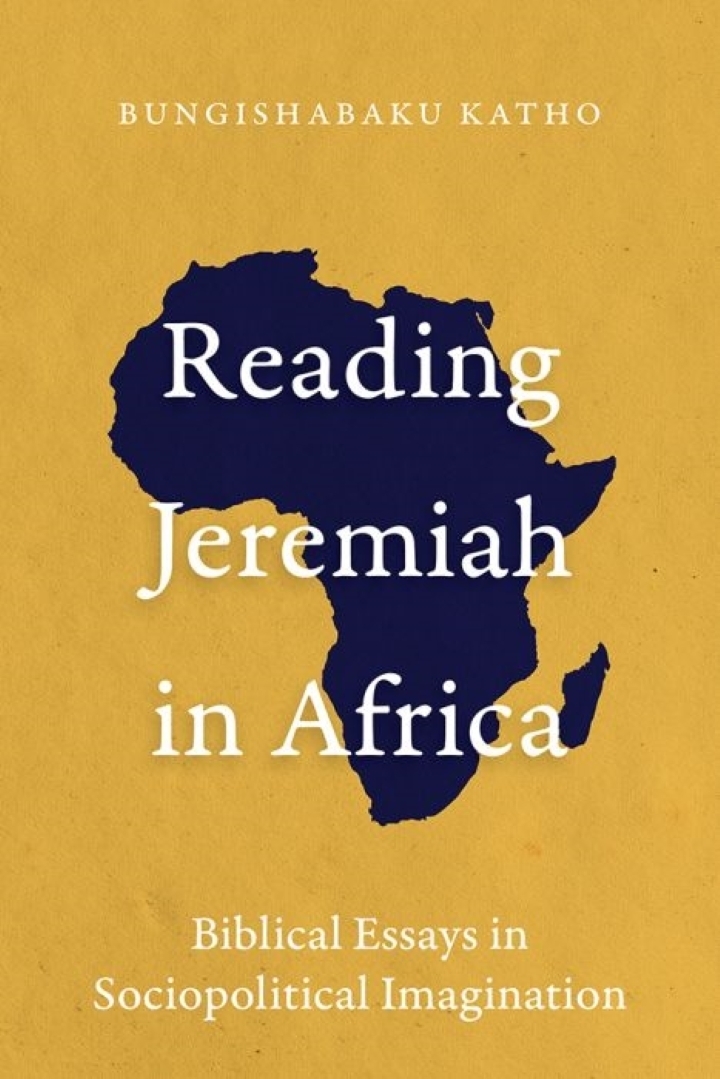When nations decay, the church cannot be a passive observer
This article is adapted from a new book by the author, Reading Jeremiah in Africa: Biblical Essays in Sociopolitical Imagination. A pastor in the Evangelical Church of the Brethren, Bungishabaku Katho is a professor of Old Testament studies at Shalom University in Bunia, DR Congo. Dr. Katho is also the founder and executive director of the Jeremiah Center for Faith and Society. He has a PhD in biblical studies from the University of Natal in South Africa.
My anguish, my anguish! I writhe in pain!
Oh, the walls of my heart!
My heart is beating wildly;
I cannot keep silent;
for I hear the sound of the trumpet,
the alarm of war.
Disaster overtakes disaster,
the whole land is laid waste.
- Jeremiah 4:19–20 New Revised Standard Version (NRSV)

Jeremiah loves his country. This explains his grief and cry for his beloved people and for himself. The prophet wonders how much longer he can stand the emotional strain of preaching to the paralyzed nation of Judah, destroyed from within by rampant idolatry, corruption, and all manner of social and spiritual evil. Jeremiah knows that Judah is a careless fish about to be eaten by a shark!
Jeremiah’s prophetic grief and cry speak powerfully to our situation in Africa and many places across the world. Our pastors and church leaders may do well in caring for the soul but have no margin left to grieve over the direction in which the whole nation is heading. Yet this is changing, and many church leaders in Africa have come to understand the urgent need to engage with political issues in their ministries. For example, Linda Ochola-Adolwa, the executive pastor of Mavuno Church in Nairobi, Kenya, has rhetorically asked:
"Should we just leave politics to the politicians? Should a few individuals dictate how our lives in the city are lived? We cannot afford to be passive observers while all hell breaks loose around us. Nairobi is not neutral; you must influence or be influenced."
This strong statement should be a vision of the church of Africa in the 21st century. There is no way to disassociate our Christian ministry from pressing political and other social issues in our nations, remaining passive while the continent is burning. This calls us, like Jeremiah, to engage in dialogue with those in power, being bold and forthright, innovative and constructive. At the same time, we must educate individual believers to refuse to be constantly deceived by politicians, most of whom work only for their own interests, as was the case in Judah during the time of Jeremiah. Jeremiah shows that we must deeply grieve for national matters and speak out. This will be easier in some countries than in others.
Jeremiah was a spiritual leader who spent private hours in combative prayer with the Lord and was thus equipped for a public ministry — grieving for his nation, opening addressing public issues, challenging public opinion and confronting political leaders. The type of automatic obedience to political authority that is common in some of our churches simply had no place in his ministry.
The lesson of Jeremiah is that if Christianity is to remain relevant in Africa, the church has two roles to play with political engagement. First, to educate Christians about their civil rights, teach them to resist corruption, and encourage them to actively participate in the building of the nation. Second, to fulfil its prophetic calling by challenging political abuse at all levels. If Christianity neglects these responsibilities, it will perish alongside African society.
At the same time, Jeremiah shows us that Judah was ultimately destroyed from within. I think of a meeting of major Protestant leaders I attended in my country that disintegrated into chaos because of disunity and dysfunction. How can the church be salt to the nation if our conduct is the same or worse than that of the politicians? The social life of a community matters to Yahweh because from the beginning, God’s plan has never been to create scattered individuals but to build a society, a community of people who reflect his character of peace, justice, mercy, righteousness, and love.
It is the same with Christianity today. The world will not be interested in our church and in knowing God unless they see a difference in the way we live as a Christian community. In this sense, true evangelism should start with the building of a transformed community.

